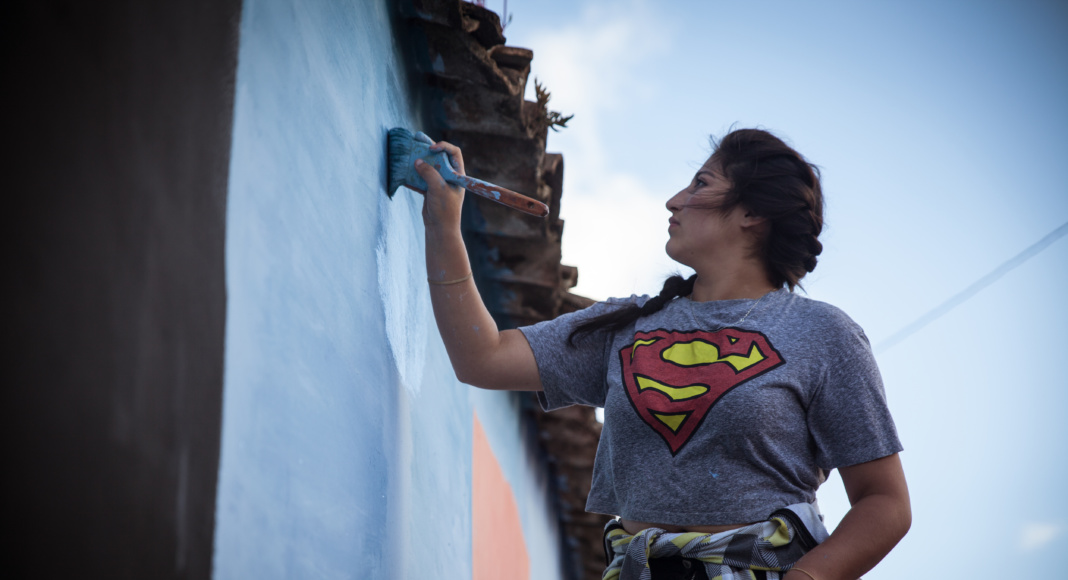This is a new project in LAB’s Research Engagement & Impact (REI) work, where we partner with university researchers to help them disseminate research messages ‘beyond the campus’. You can download a brochure about this work here.
One in three women in Latin America have experienced gender-based violence over their lifetime – the highest rate in the world. This incidence has increased during the coronavirus pandemic, with governments and civil society recognising the urgency of addressing the phenomenon. While there is much research on the nature and causes of such violence, there is little exploration of projects that address this violence.
In response, LAB council members Marilyn Thomson and Louise Morris and academics at King’s College, Professors Cathy McIlwaine and Jelke Boesten, are embarking on a new project to explore and celebrate grassroots campaigns and organisations that counter violence against women and girls in Latin America — through a podcast series, website, workshop and book that foregrounds the voices of the women affected.
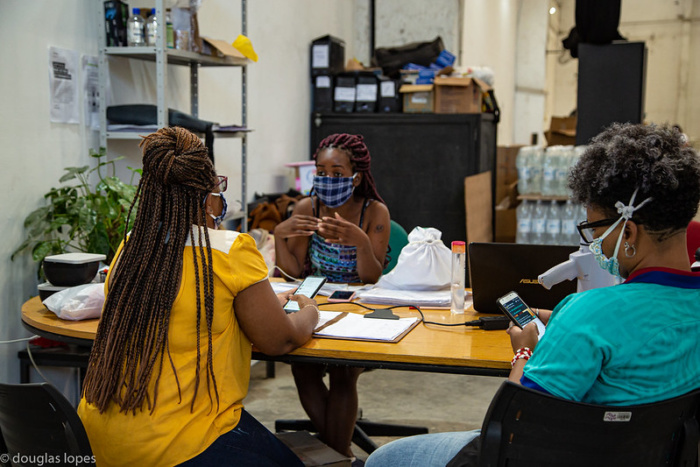
The project will amplify the voices of women who have both suffered violence and who are building campaigns and initiatives to fight against gender violence from the grassroots up. Examples of their work will be celebrated and held up as case studies in order to positively influence broader policies around violence against women, both within and beyond Latin America.
While there is plentiful research on the nature and causes of gendered violence against women and girls, there is little work that analyses the approaches that have effectively contributed to change. Often we don’t hear directly from the women affected by violence, or those working hard to change this reality. The new project will address this neglect, prioritising conversation with activists, and analysing the transformative nature of their work.
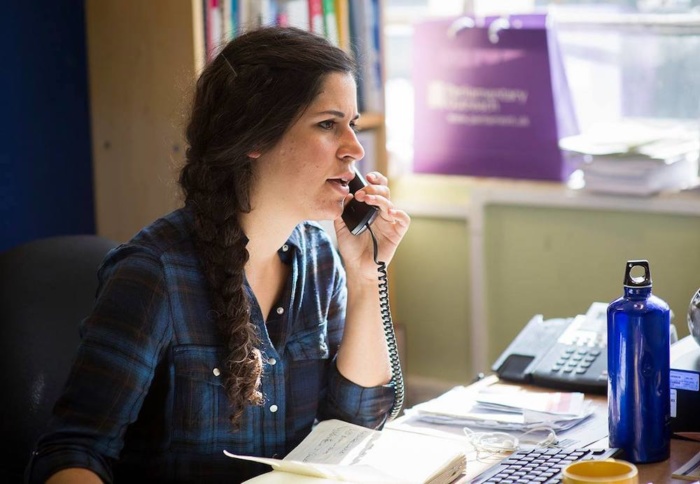
Existing empirical evidence from Latin America demonstrates that gender-based violence against women and girls intersects with many other forms of violence (on account of race, ethnicity, class, sexual orientation, geographical background and other social factors) to further disempower women. The project will keep an intersectional perspective on the issues organisations tackle, and the ways that they succeed.
The team
Researchers Cathy McIlwaine and Jelke Boesten have worked on gendered violence in Brazil, Peru, Colombia and Guatemala as well as the UK for over 15 years. Marilyn Thomson was previously director of the Central America Women’s Network (CAWN), managing a five-year project with grassroots women’s organisations on violence against women and poverty in Central America, and producing a toolkit of best practice in addressing violence against women and girls with an intersectional lens. Louise Morris, a journalist, audio and TV producer, has primarily made documentaries for BBC R4 and worked on a daily TV magazine show.
Supported by the Economic and Social Research Council’s (ESRC) Impact Acceleration Account Policy & Practice Fellowship at King’s, the researchers will work alongside Patricia Muñoz Cabrera, an independent gender consultant, scholar and researcher based in Paris, who was former Chair of Women in Development Europe (WIDE). She has extensive experience as a gender policy advisor in Latin America and beyond.
The podcast
The three-part podcast series will focus on the inspirational stories of key changemakers, the challenges they have faced and the lessons they can teach us in how to resist intersectional gendered violence against women. These change-makers have reshaped their communities’ attitudes and helped transform the lives of those impacted by violence, working collaboratively to advocate for change at an institutional level.
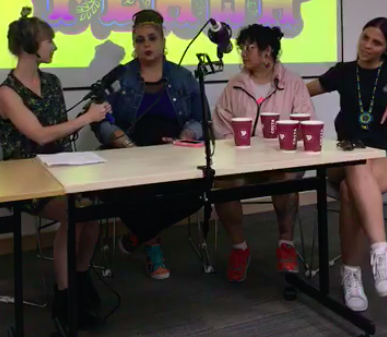
Potential cases covered by the podcast series and the book include violence faced by migrant women – both within and outside of Latin America; body politics – women responding to violations and demanding their reproductive and sexual rights; and challenging corporate power – looking at women resisting economic violence that destroys their environment and communities. The project will also cover women’s responses to heightened domestic violence during the COVID-19 pandemic.
The podcasts will foreground women’s personal experiences — both those of the activists running projects and those of their beneficiaries. They can be used as teaching resources for community groups, NGOs and students.
The book
While the podcast series provides first-hand testimony of the changemakers in their own words, the book aims to contextualise their experiences further, providing additional examples of innovative violence mitigation actions and projects across Latin America. It will also serve to unpack the intersectional nature of the violence that women and girls face, contextualising individual issues in terms of the many other factors affecting these women’s struggles and successes.
Policy and workshop
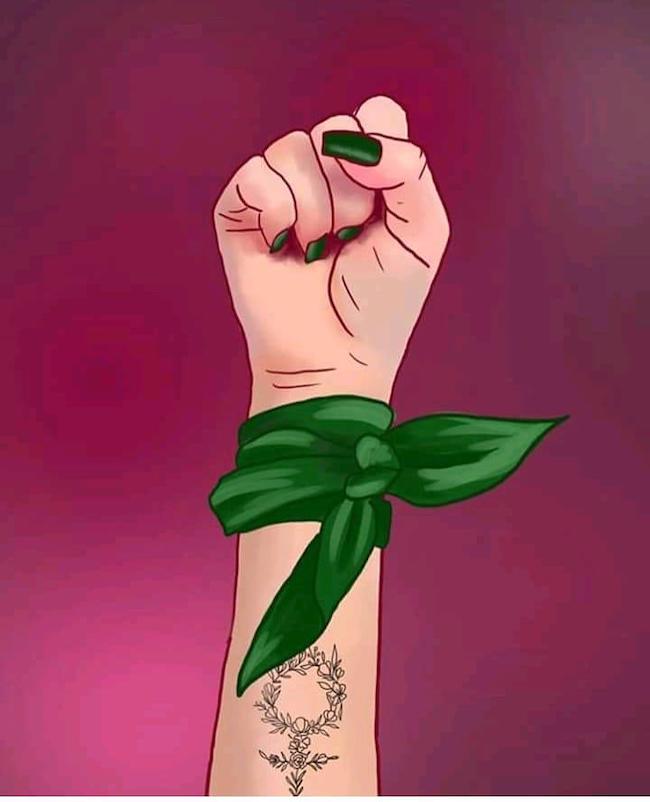
The final stage of the Women Resisting Violence Project will be developing a policy briefing and a workshop with policy makers to discuss how these transformative experiences can be taken forward. The project team say:
“Our ultimate aim for this project is to contribute to policy change around mitigating intersectional gendered violence against women and girls. We are incredibly excited and honoured to share these women’s experiences and teachings with you.”
Find out more about LAB’s REI work and download a brochure of LAB’s services. Or head to wrv.org.uk to see the project in action.
Main image: Pierre Fromentin

